Treated for poisoning, 30 vultures were released back to the wild in Sivsagar, Assam
Demow, Sivsagar, Assam: In late March 2019, a rescue call for 66 vultures impacted by poisoning came in from Netaipukhuri area of Demow in Sivsagar district. Wildlife Trust of India team from centre for Wildlife Rehabilitation and Conservation (CWRC), Assam immediately responded and it was found to be a case of secondary poisoning. 34 were brought in for rehabilitation. After about 2 weeks of intensive treatment and care, they were released back to the wild by the joint team of Assam Forest Department (AFD), Wildlife Trust of India (WTI) and International Fund for Animal Welfare (IFAW). Interestingly the vultures were released at the site of rescue itself, Netaipukhuri Jamuguri village in Sivsagar district of Assam.
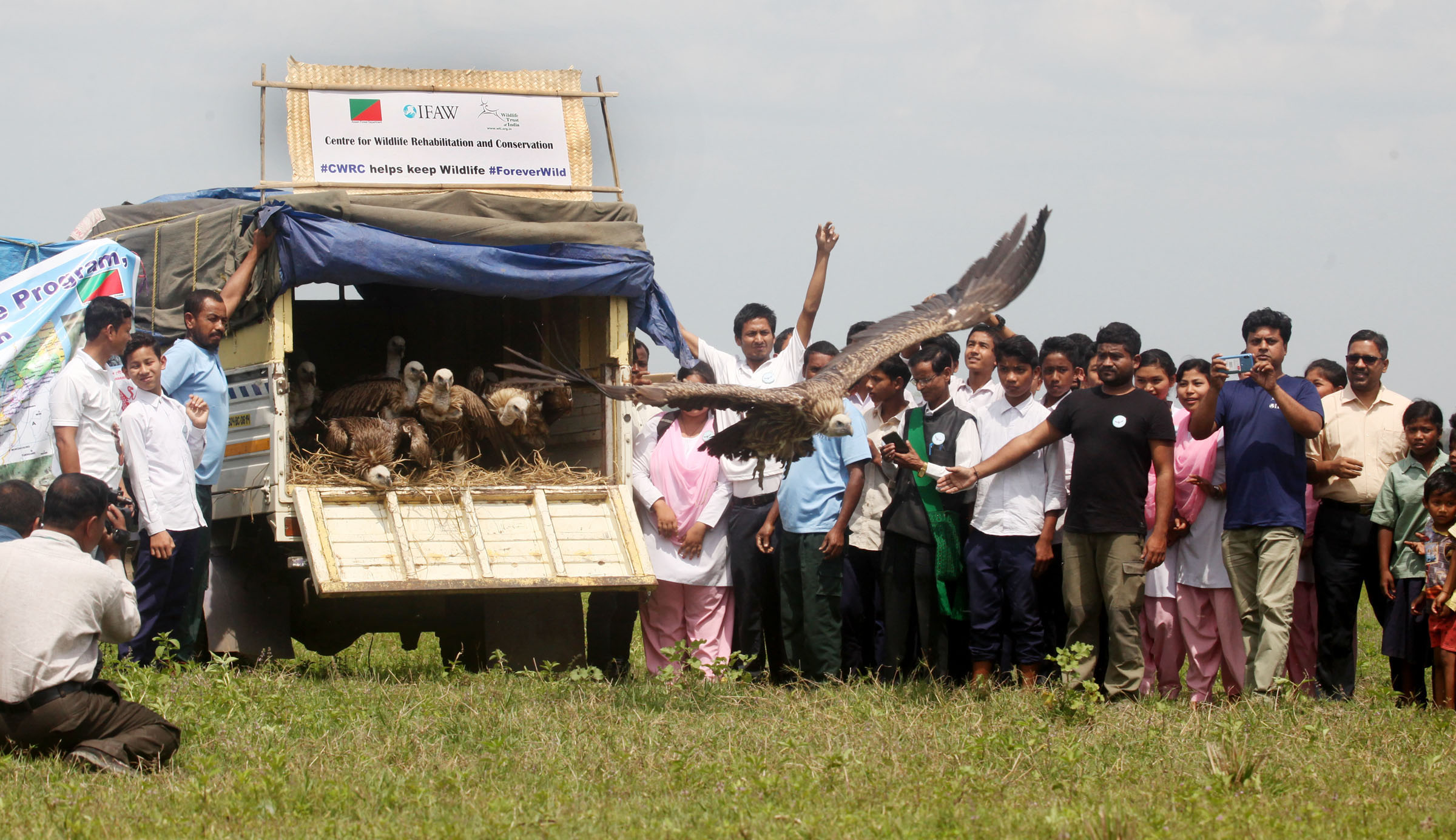
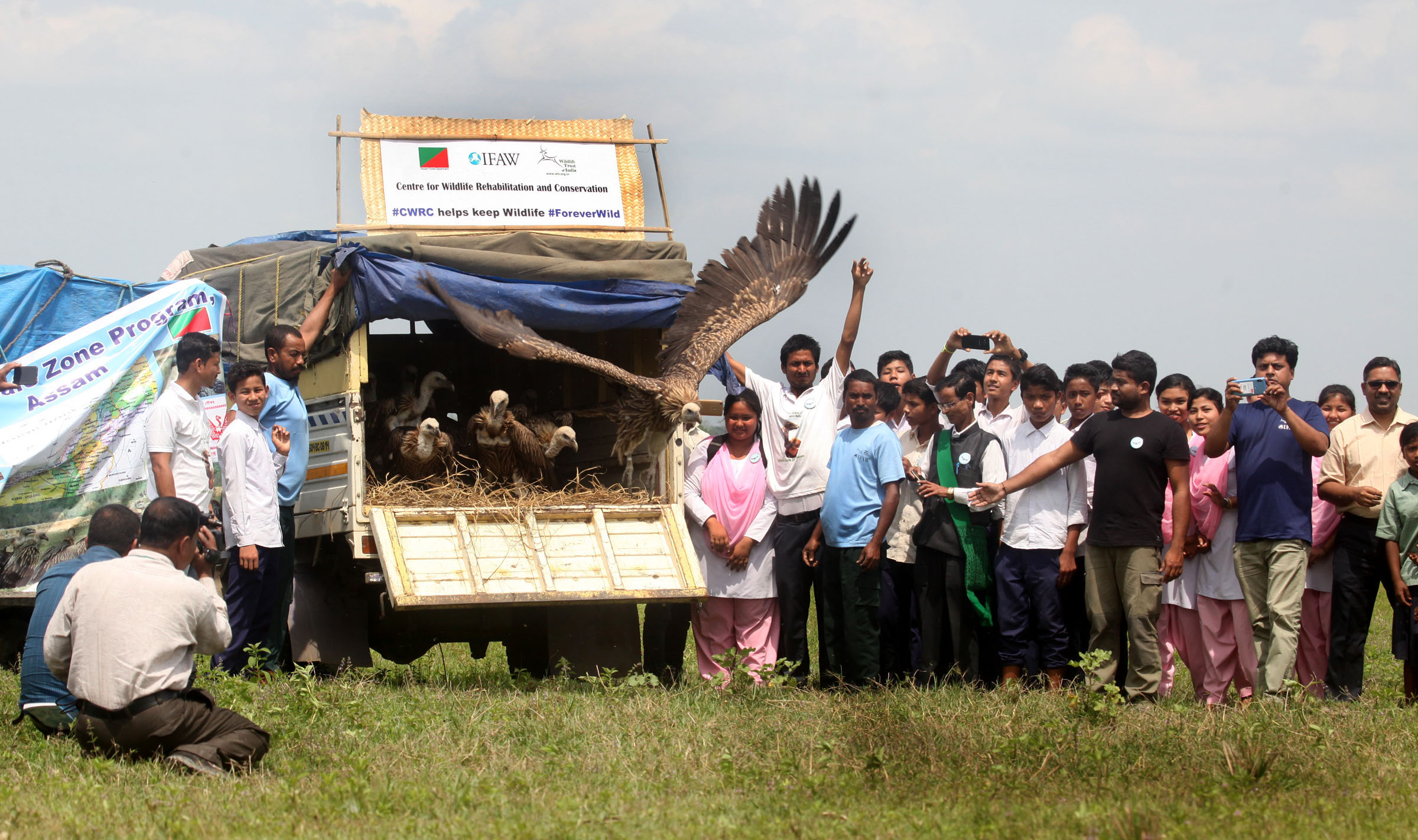
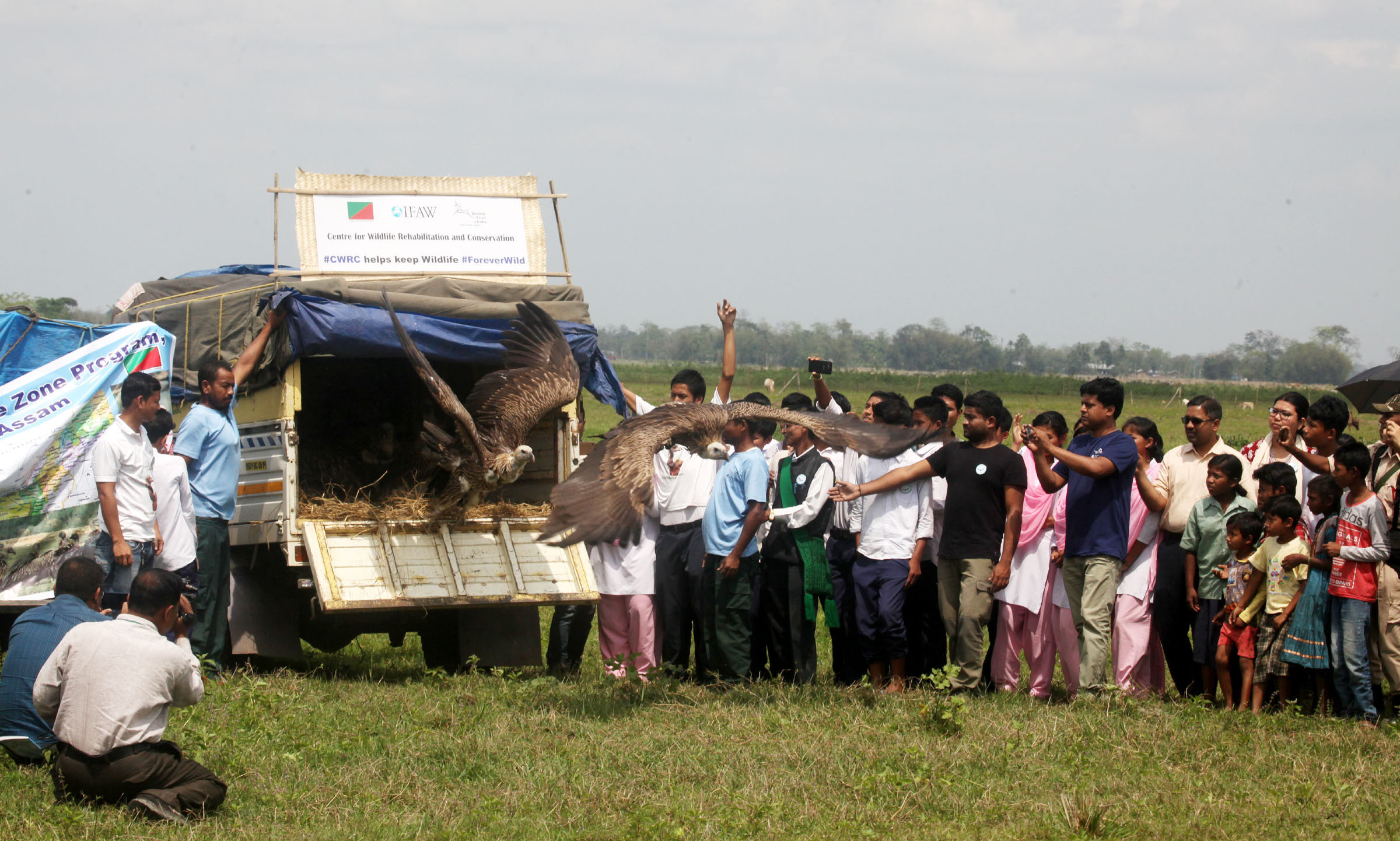
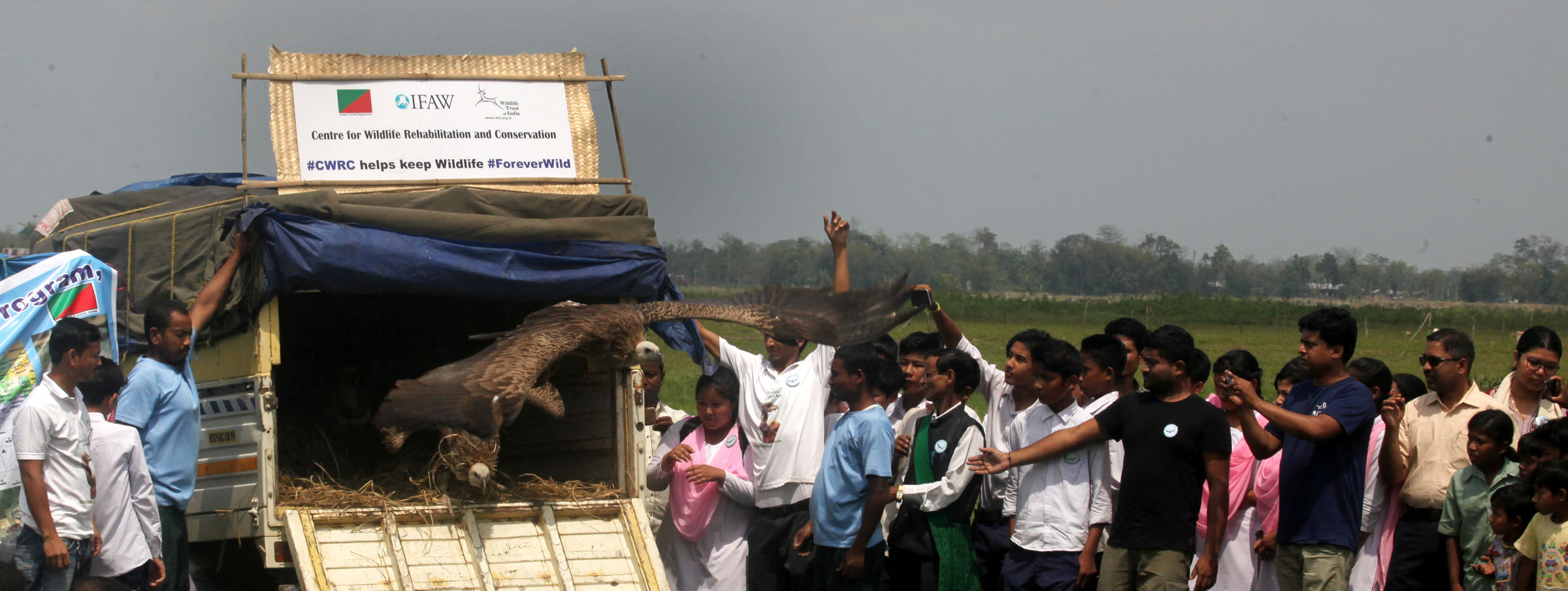
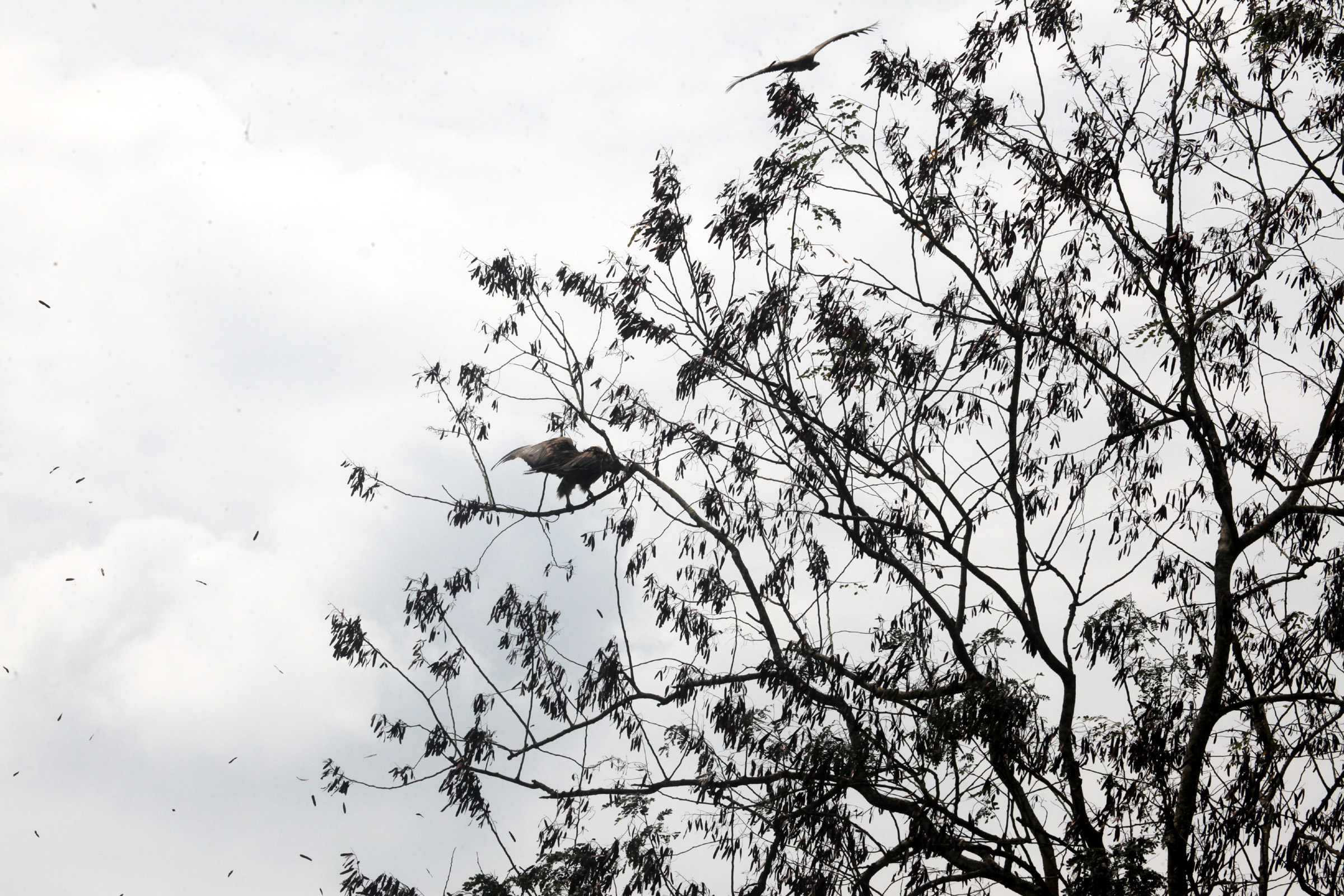
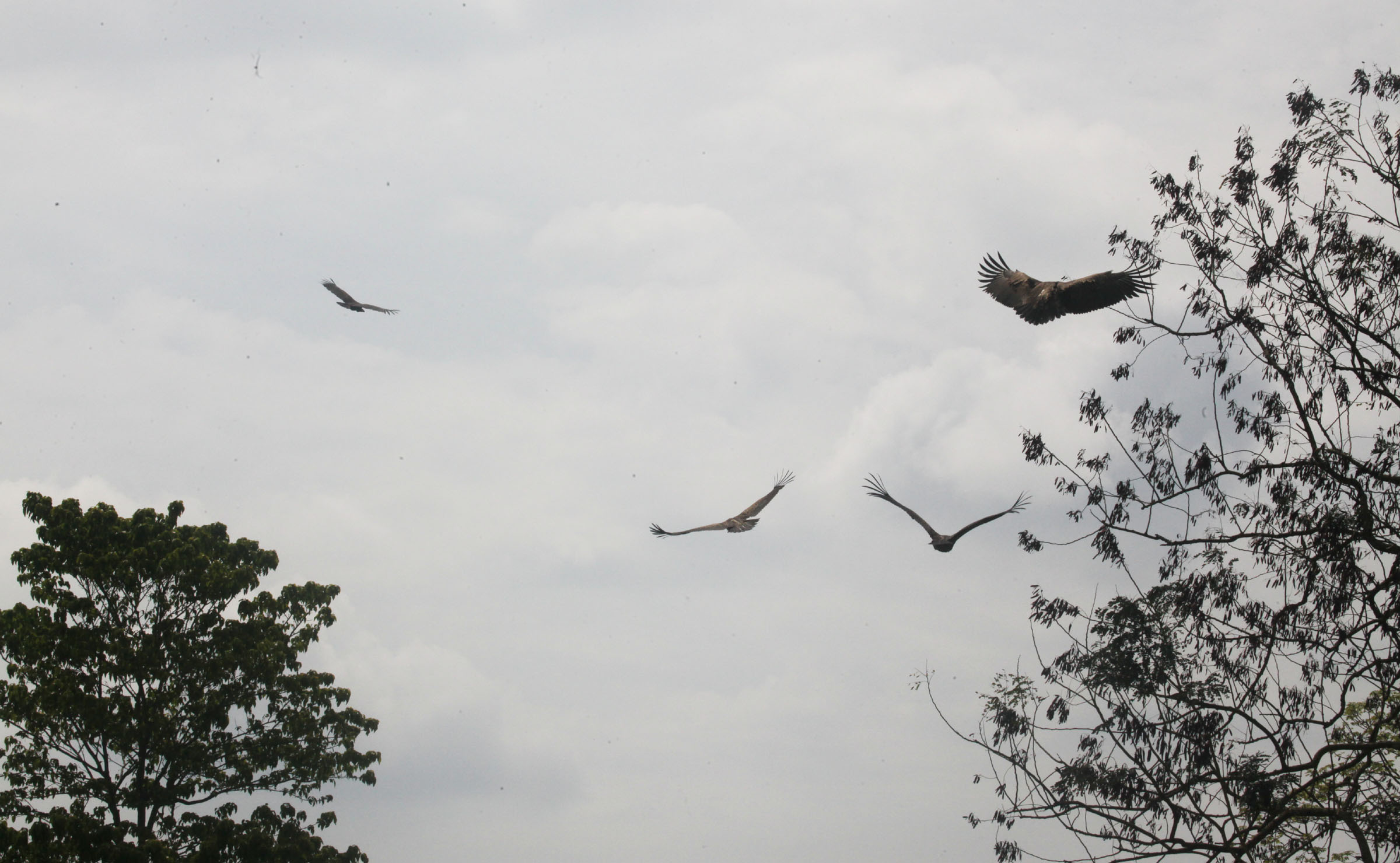
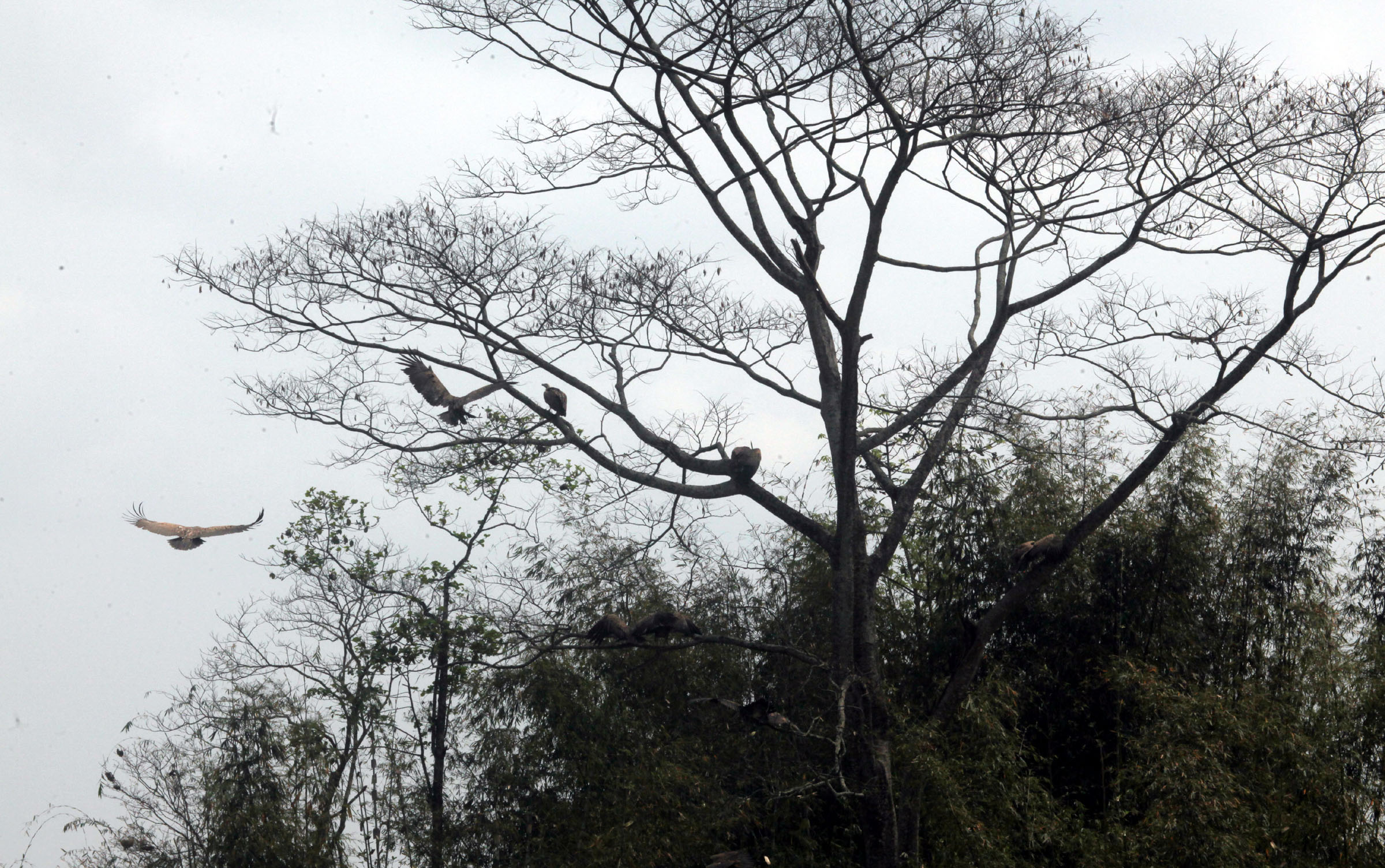
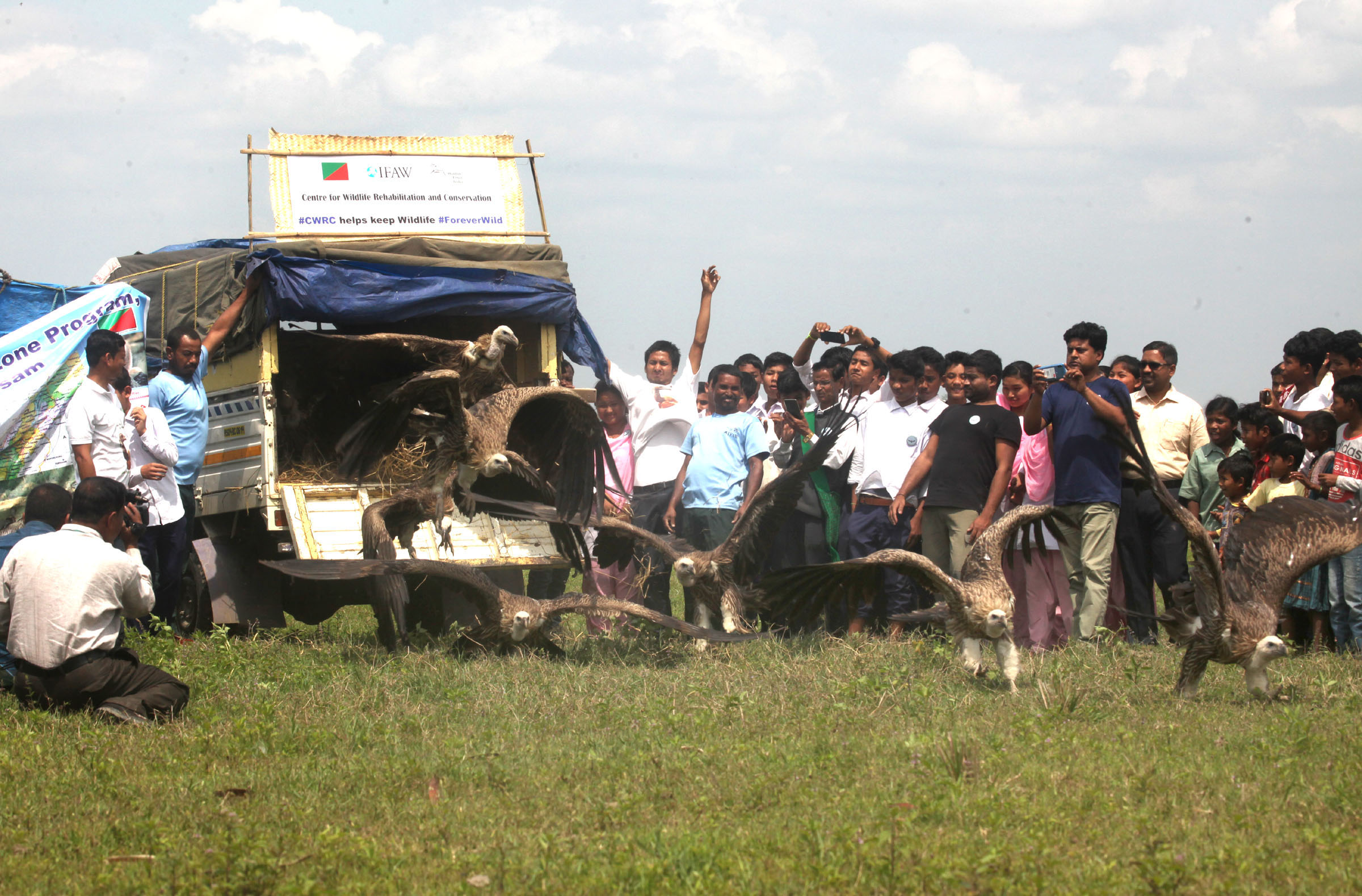
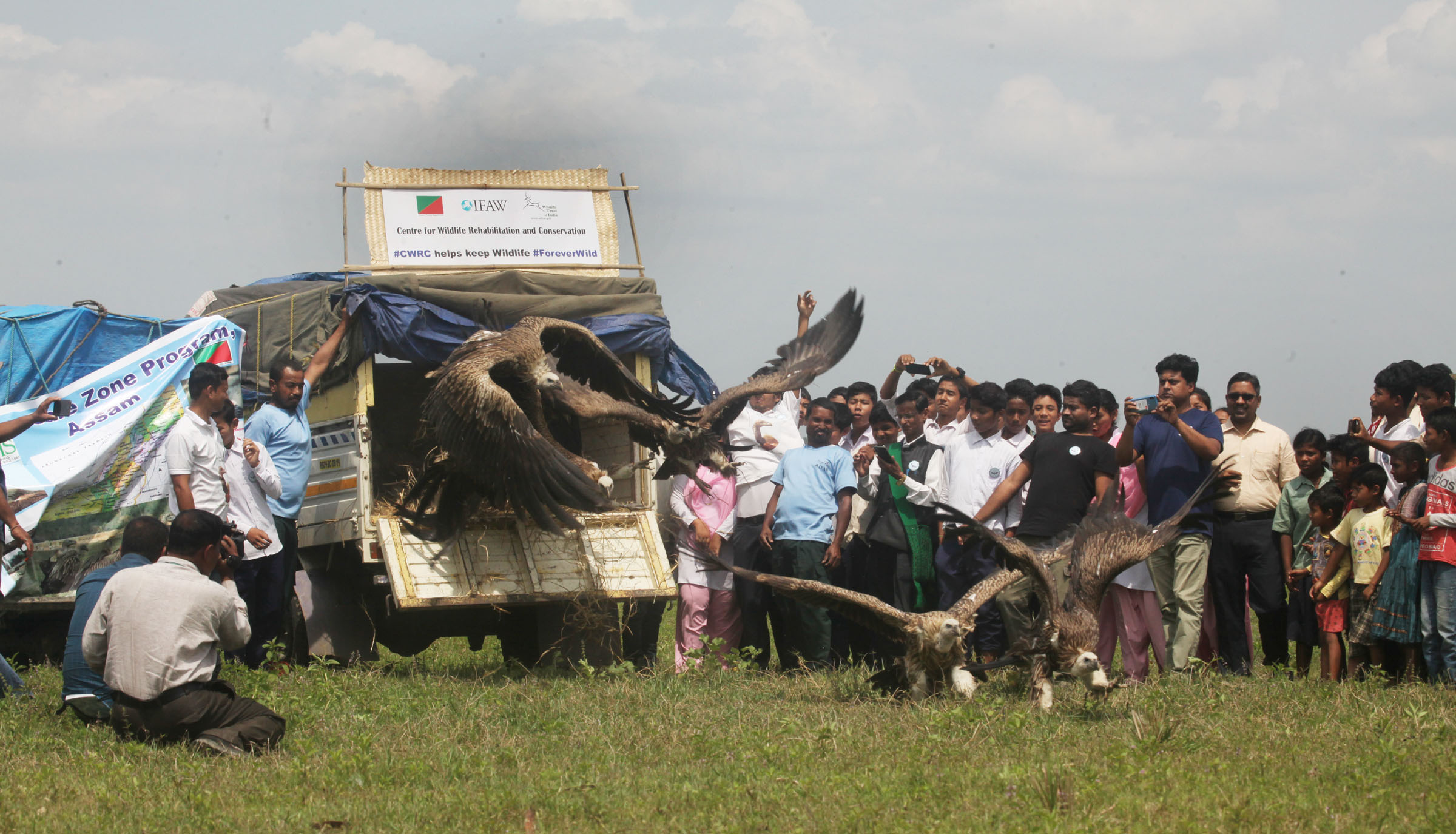
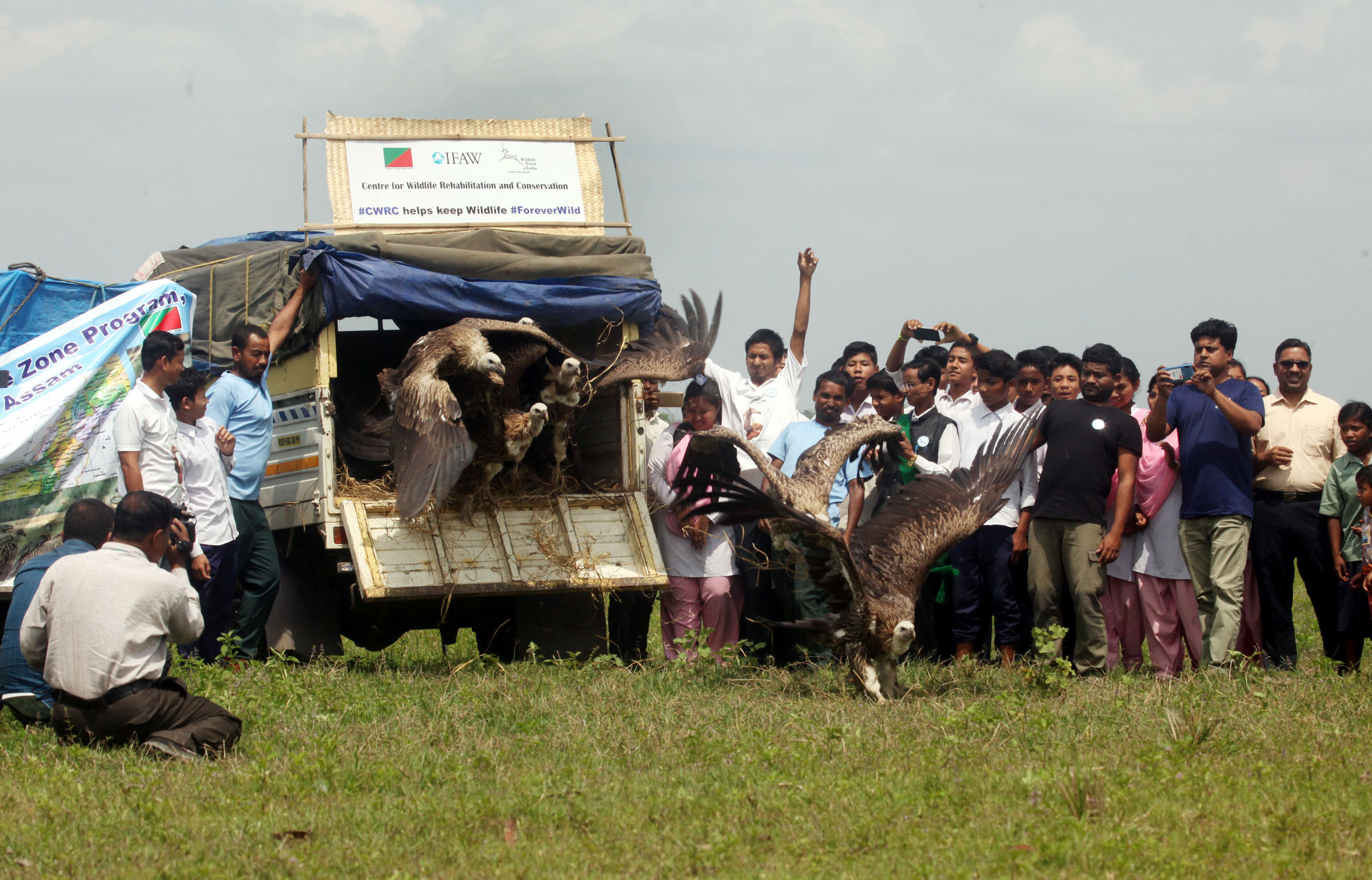
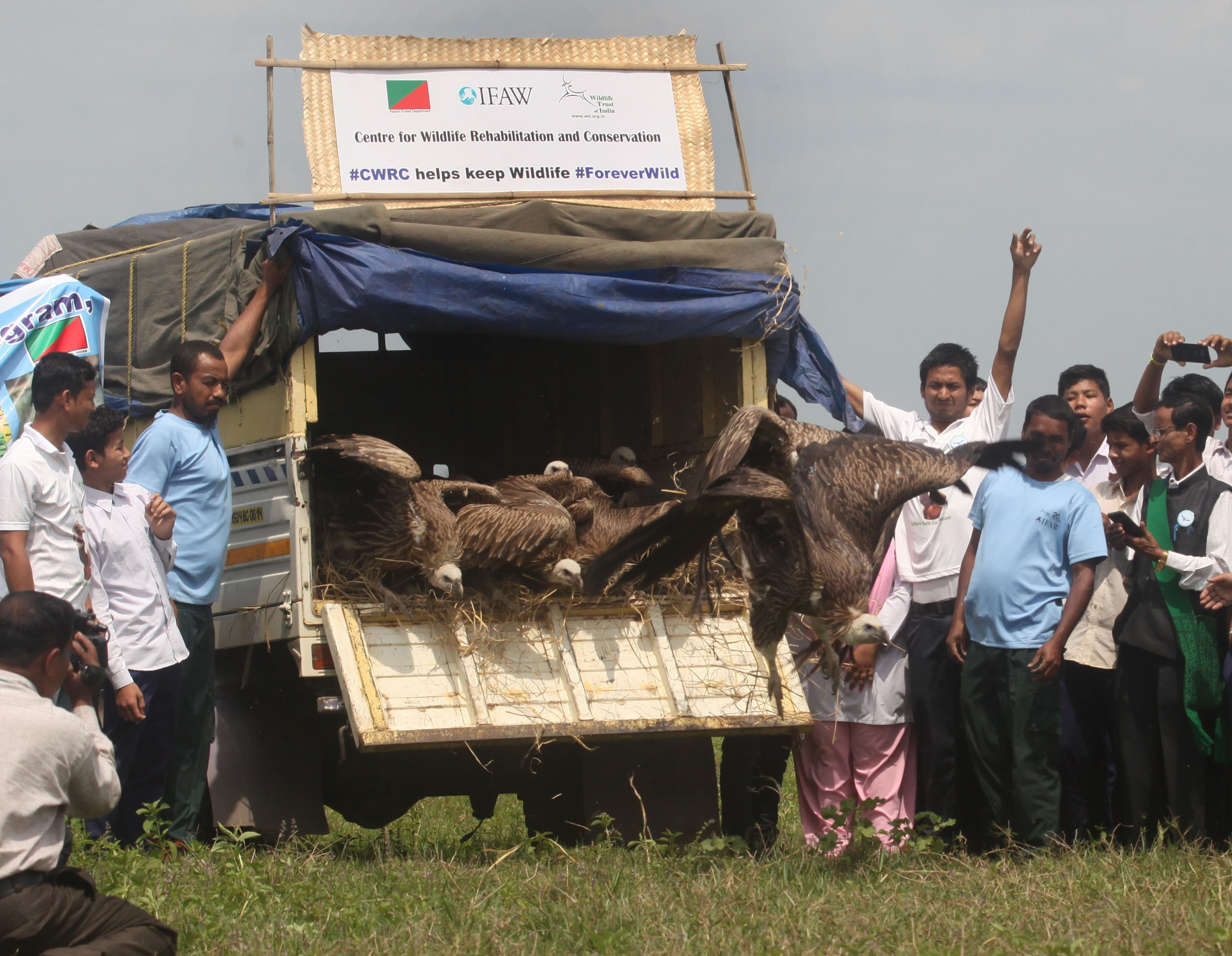
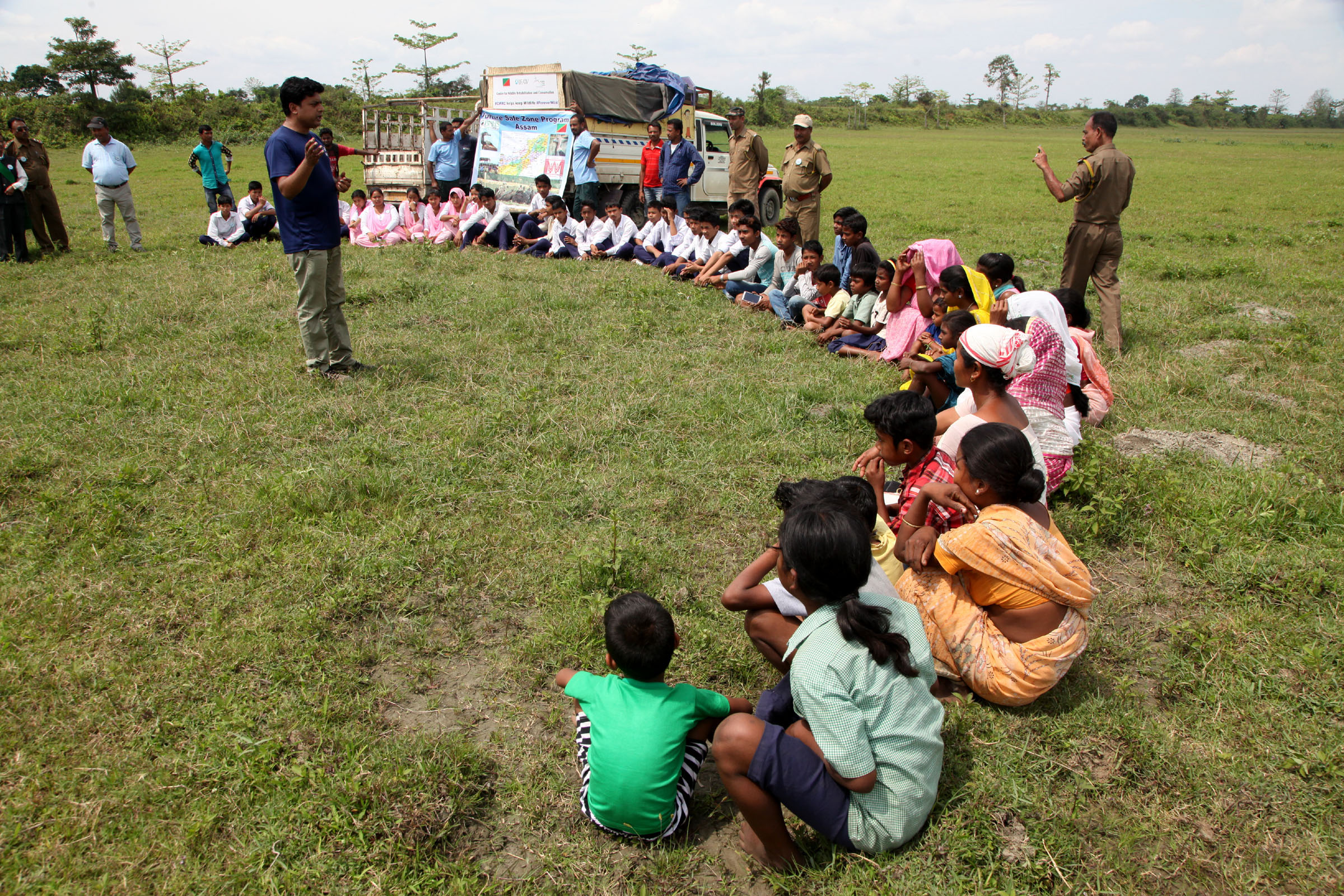
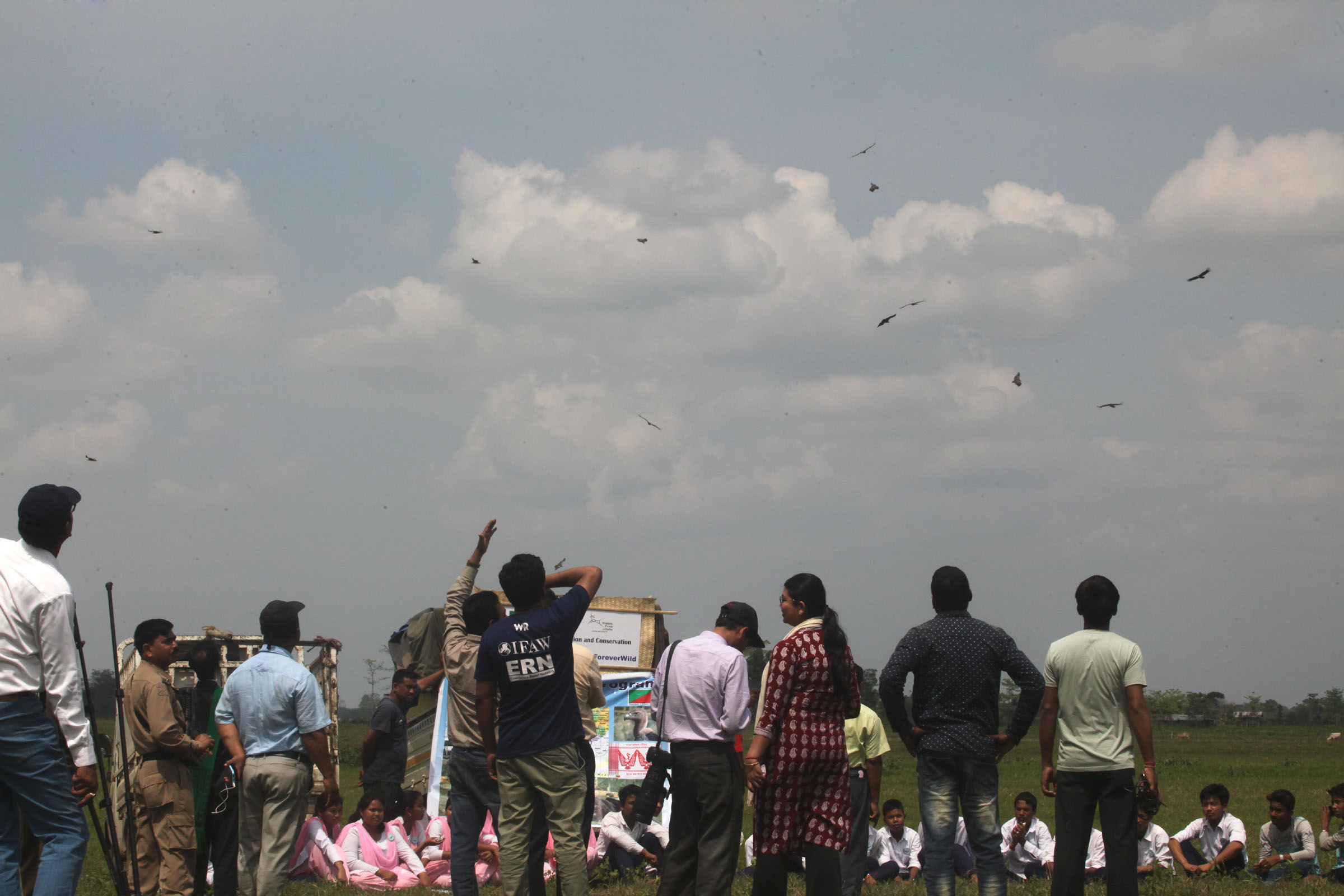
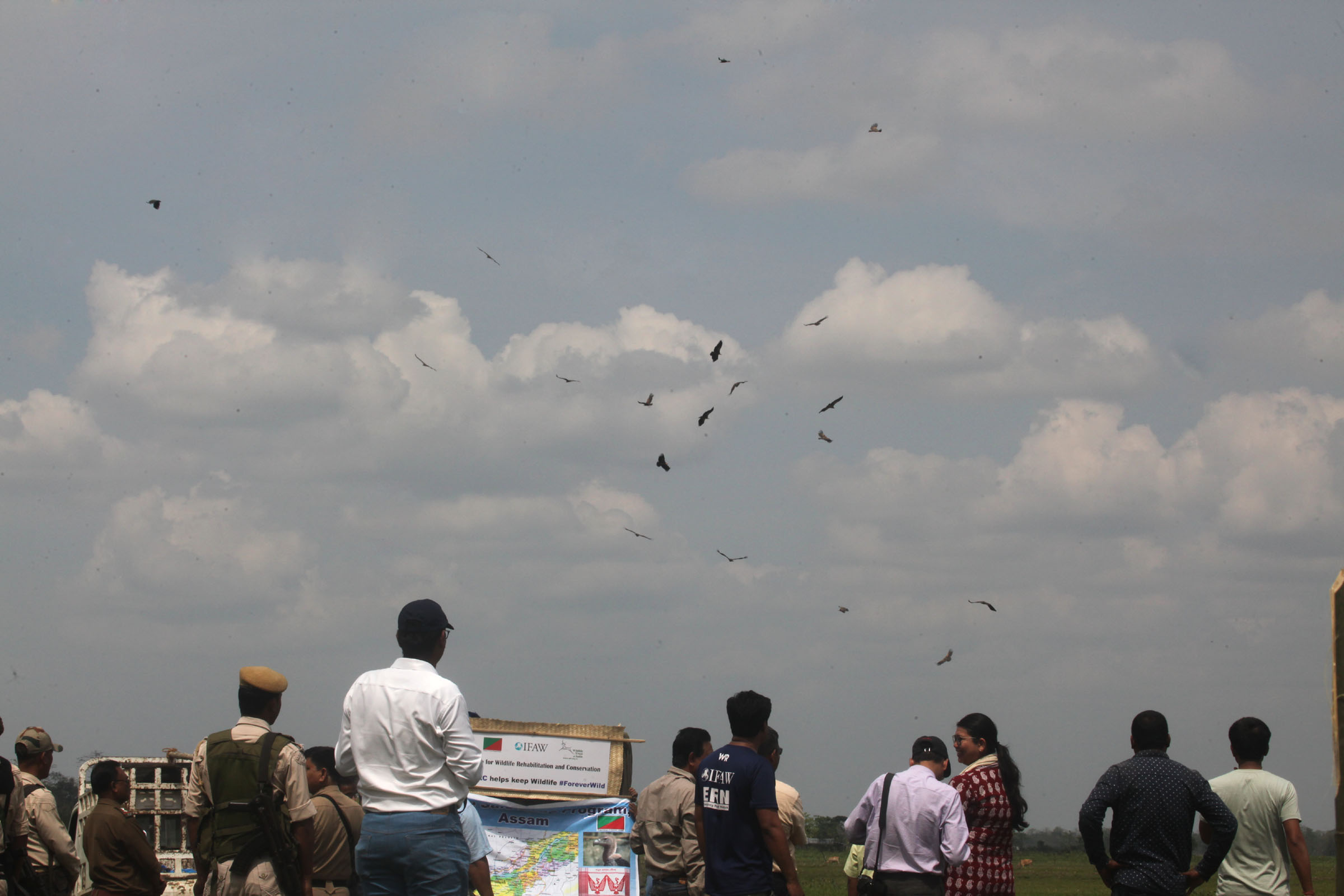
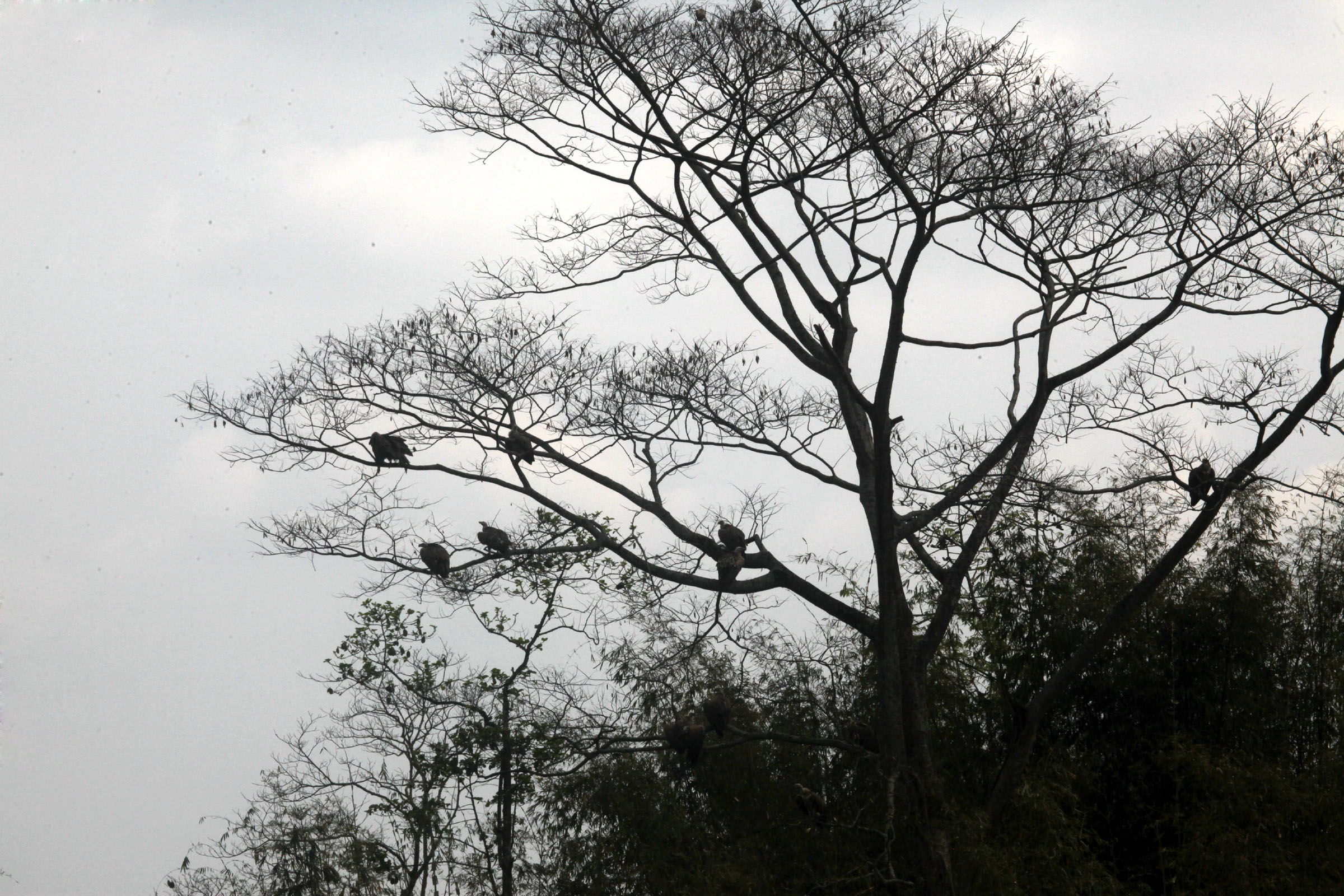
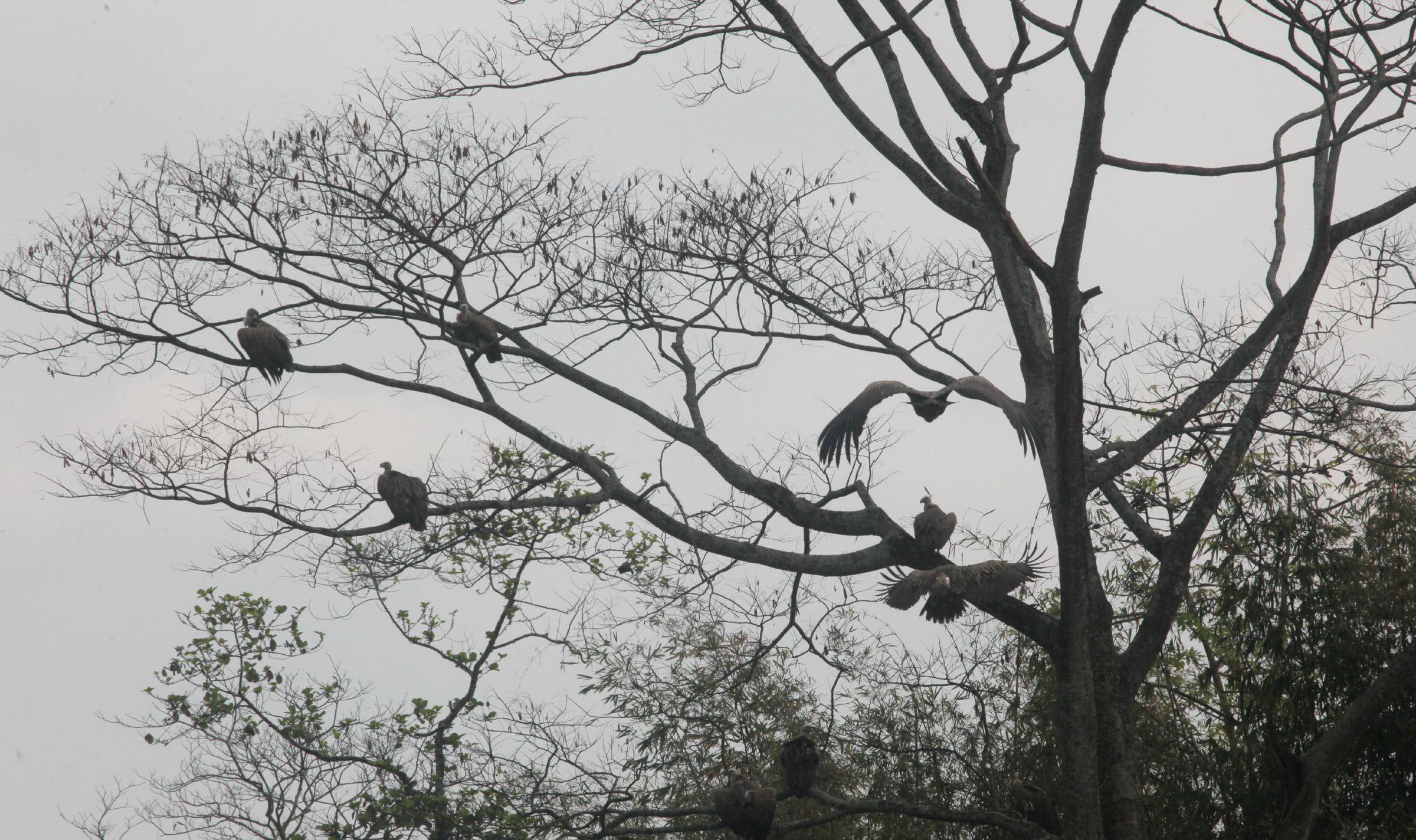
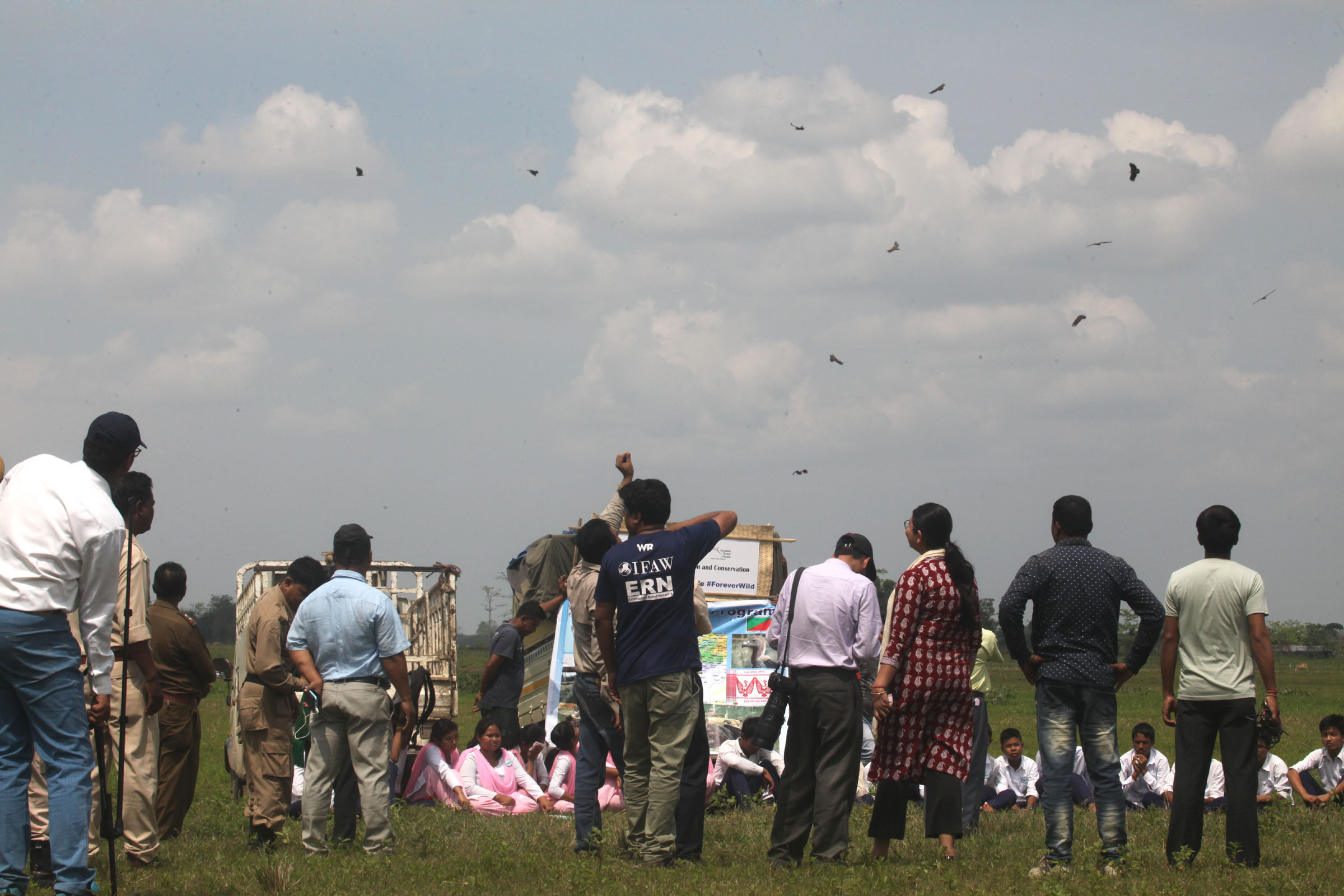
66 vultures were found in Netaipukhuri area of Demow in Sivsagar district on 29 March 2019 due to secondary poisoning after feeding on a carcass, of which 32 were already dead. The joint team of AFD along with locals and NGOs and CWRC run by WTI rescued the remaining 34 vultures from the site to be admitted for observation and critical treatment. Out pf these three were Slender billed vultures, one was white rumped vulture and the remaining 30 were Himalayan griffons. Out of the ones admitted, thirty were released back to the wild at Sivsagar earlier today. Three vultures despite best efforts succumbed to the poisoning while one is still recuperating at the centre.
Dr Samshul Ali, the veterinarian who closely was treating the sick vultures, said, “All the birds were affected by Organophosphate pesticide due to malicious poisoning of cattle carcass by miscreants. After our intensive management we were able to save lives of 31 of these individuals”
The birds are released under the supervision of Jayashree Naiding Tonk, DFO, Sivsagar and DC Sivsagar Dr Rathin Barman, Joint Director, WTI.
CWRC, is a wildlife rehabilitation facility jointly run by Wildlife Trust of India (WTI), the International Fund for Animal Welfare (IFAW) and the Assam Forest Department near Kaziranga National Park. Since 2003, CWRC has handled over 120 cases of such vultures with suspected poisoning and released around 70% of these back to the wild.